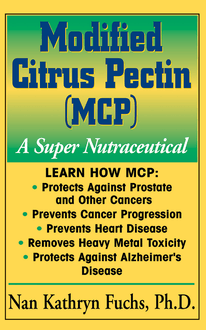-
 Univers
Univers
-
 Ebooks
Ebooks
-
 Livres audio
Livres audio
-
 Presse
Presse
-
 Podcasts
Podcasts
-
 BD
BD
-
 Documents
Documents
-
- Cours
- Révisions
- Ressources pédagogiques
- Sciences de l’éducation
- Manuels scolaires
- Langues
- Travaux de classe
- Annales de BEP
- Etudes supérieures
- Maternelle et primaire
- Fiches de lecture
- Orientation scolaire
- Méthodologie
- Corrigés de devoir
- Annales d’examens et concours
- Annales du bac
- Annales du brevet
- Rapports de stage
La lecture à portée de main
Vous pourrez modifier la taille du texte de cet ouvrage
Découvre YouScribe en t'inscrivant gratuitement
Je m'inscrisHealth Benefits of Phosphatidylserine (PS) , livre ebook
Découvre YouScribe en t'inscrivant gratuitement
Je m'inscrisEn savoir plus
Vous pourrez modifier la taille du texte de cet ouvrage
En savoir plus

Description
Sujets
Informations
| Publié par | Turner Publishing Company |
| Date de parution | 01 août 2004 |
| Nombre de lectures | 0 |
| EAN13 | 9781681629438 |
| Langue | English |
Informations légales : prix de location à la page 0,0248€. Cette information est donnée uniquement à titre indicatif conformément à la législation en vigueur.
Extrait
H EALTH B ENEFITS OF P HOSPHATIDYLSERINE (PS)
Learn How Supplemental Phosphatidylserine (PS) Can:
Help Slow Down Brain Aging
Reduce the Risk of Dementia
Help Improve Brainpower
Fend Off Cognitive Decline
Help Treat Alzheimer s Disease
James J. Gormley and Shari Lieberman, Ph.D., C.N.S., F.A.C.N.
The information contained in this book is based upon the research and personal and professional experiences of the authors. It is not intended as a substitute for consulting with your physician or other healthcare provider. Any attempt to diagnose and treat an illness should be done under the direction of a healthcare professional.
The publisher does not advocate the use of any particular healthcare protocol but believes the information in this book should be available to the public. The publisher and authors are not responsible for any adverse effects or consequences resulting from the use of the suggestions, preparations, or procedures discussed in this book. Should the reader have any questions concerning the appropriateness of any procedures or preparation mentioned, the authors and the publisher strongly suggest consulting a professional healthcare advisor.
Series Cover Designer: Mike Stromberg
Editor: Carol Rosenberg
Typesetter: Gary A. Rosenberg
Basic Health Guides are published by
Basic Health Publications, Inc.
basichealthpub.com
Copyright 2005 by James J. Gormley and Shari Lieberman, Ph.D., C.N.S., F.A.C.N.
ISBN 978-1-59120-137-3 (Pbk.)
ISBN 978-1-68162-902-5 (Hardcover)
All rights reserved. No part of this publication may be reproduced, stored in a retrieval system, or transmitted, in any form or by any means, electronic, mechanical, photocopying, recording, or otherwise, without the prior written consent of the copyright owner.
Contents
Introduction
1. Memory and Cognition
2. Phosphatidylserine (PS) for Brain Health
3. Flex Your Brain and Your Body
4. Diet and Brain Health
Conclusion
Appendix: Studies on Phosphatidylserine
Resources
Selected References
Index
About the Authors
A NOTE FROM THE PUBLISHER
The phosphatidylserine-specific information in this book is based on scientific studies and literature as listed in the Appendix and Selected References. The research cited is not based on any one particular product. The following brands of phosphatidylserine are all made by reputable manufacturers:
Nature s Bounty Neuro-PS (phosphatidylserine with ginkgo biloba)
GNC Phosphatidylserine 100
Vitamin World Neuro-PS (phosphatidylserine) Brain Reactions Active Mind
Solgar Phosphatidylserine Complex Tablets
Puritan s Pride Neuro-PS (phosphatidylserine) Think Sharp
Country Life Biochem Neuro-PS
Jarrow Formulas PS-100
Swanson Ultra Phosphatidylserine
Introduction
You have to begin to lose your memory, if only in bits and pieces, to realize that memory is what makes our lives. Life without memory is no life at all . . . Our memory is our coherence, our reason, our feeling, even our action. Without it, we are nothing .
-LUIS BU UEL (1900-1983)
People over age fifty make up 68.2 million (one-third) of the adult population in the United States. In the next twenty years, that number will increase to 115 million. Preserving and enhancing mental functions, or cognition, is of critical concern to almost everyone, but especially to the many millions of people on the other side of forty.
Remembering and forgetting are normal parts of everyday life for people of all ages. But what about when we get older? Is losing our memory an inevitable milestone of aging? You ll be glad to know that it doesn t have to be. There are many things we can do to protect and preserve our memories and the general health of our brains.
As we age, nutrition is a particularly important key to preserving memory and maintaining brain health. In fact, modern nutritional science is uncovering a wide array of nutrients and natural compounds-such as amino acids, medicinal herbs, specific dietary supplements, and fats-that effectively, and even powerfully, improve our mental powers. One such helpful nutrient is phosphatidylserine, or PS for short. As you ll learn, this naturally occurring substance is a good fat that is essential to brain health.
While it s true that there are no magic bullets, we don t accept the conventional received wisdom of the medical establishment that tells us that the mind is on an unstoppable decline after age thirty. We certainly don t buy that, and neither should you. In this book, we ll show you how you can take a proactive approach to help slow down brain aging. We ll take a close look at phosphatidylserine and how it benefits brain health. We ll also discuss other steps you can take to improve your memory and enhance your brainpower. First, you ll need a basic understanding of memory and cognition. Chapter 1 will help you on your way.
1. Memory and Cognition
Memory is the cabinet of the imagination, the treasury of reason, the registry of conscience, and the council chamber of thought .
-GIAMBATTISTA BASILE (1575-1632)
Memory is generally the storage of, and process of recalling, what has been learned and/or experienced. Researchers have divided memory into declarative and nondeclarative systems. Declarative memory is memory as most of us probably think of it: remembering someone (a face) or a thing (where we put our sunglasses) in a conscious way. Nondeclarative memory , on the other hand, cannot be used for direct recollection or remembering, yet it is responsible for your mind s memory of very basic survival skills, coordinated movement, fight-or-flight reactions, and the long-ingrained rote memorization associated with skills and basic tasks.
-
 Univers
Univers
-
 Ebooks
Ebooks
-
 Livres audio
Livres audio
-
 Presse
Presse
-
 Podcasts
Podcasts
-
 BD
BD
-
 Documents
Documents
-
Jeunesse
-
Littérature
-
Ressources professionnelles
-
Santé et bien-être
-
Savoirs
-
Education
-
Loisirs et hobbies
-
Art, musique et cinéma
-
Actualité et débat de société
-
Jeunesse
-
Littérature
-
Ressources professionnelles
-
Santé et bien-être
-
Savoirs
-
Education
-
Loisirs et hobbies
-
Art, musique et cinéma
-
Actualité et débat de société
-
Actualités
-
Lifestyle
-
Presse jeunesse
-
Presse professionnelle
-
Pratique
-
Presse sportive
-
Presse internationale
-
Culture & Médias
-
Action et Aventures
-
Science-fiction et Fantasy
-
Société
-
Jeunesse
-
Littérature
-
Ressources professionnelles
-
Santé et bien-être
-
Savoirs
-
Education
-
Loisirs et hobbies
-
Art, musique et cinéma
-
Actualité et débat de société
- Cours
- Révisions
- Ressources pédagogiques
- Sciences de l’éducation
- Manuels scolaires
- Langues
- Travaux de classe
- Annales de BEP
- Etudes supérieures
- Maternelle et primaire
- Fiches de lecture
- Orientation scolaire
- Méthodologie
- Corrigés de devoir
- Annales d’examens et concours
- Annales du bac
- Annales du brevet
- Rapports de stage













